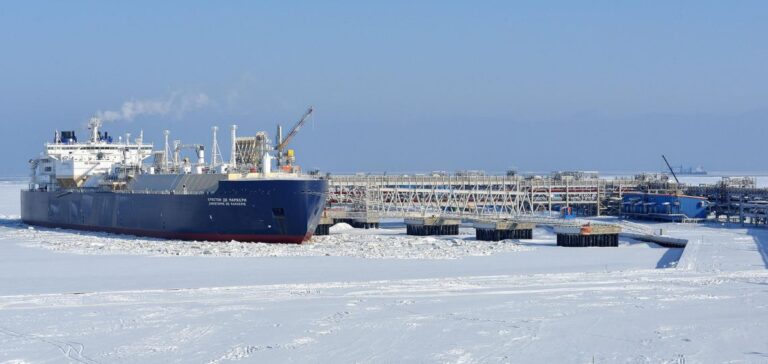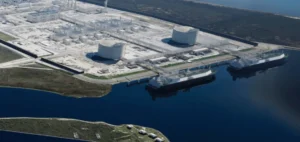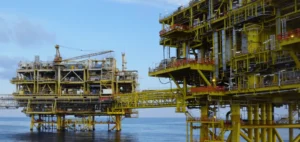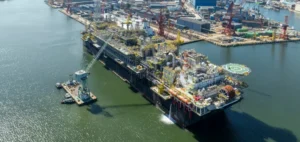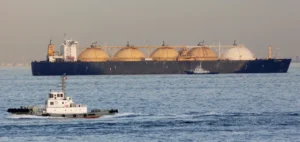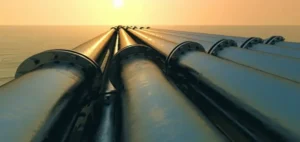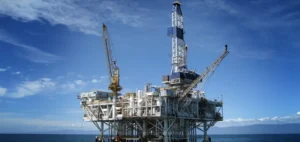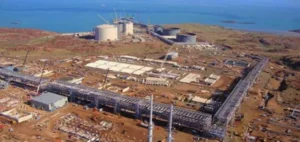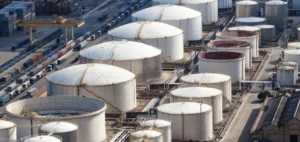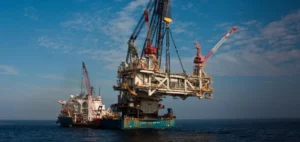The European Union has decided to ban the transshipment of Russian liquefied natural gas (LNG) in its ports, adding a new layer of restrictions to Russian exports already targeted by US sanctions.
This measure directly affects Yamal LNG, a major Arctic project led by Novatek.
By 2023, Yamal LNG will be producing 18 million metric tons per year (mmtpa) of LNG, with a significant portion destined for European and Asian markets.
Around 70% of Yamal LNG is shipped directly to Europe and Asia, mainly via the Northern Sea Route (NSR) during the summer.
The remaining 30%, or around 3 to 4 mmtpa, is transshipped in Northwest Europe before being shipped to Asia or other European destinations.
With the ban on transshipment, Yamal LNG must rethink its logistics chains and explore new routes or storage options, despite the seasonal constraints and high logistics costs associated with these adjustments.
European sanctions pave the way for further restrictions
The EU ban could mark the start of a broader tightening of Western sanctions against the Russian energy sector.
Should the EU decide to extend the ban to all Russian LNG imports, European companies with Free on Board (FOB) or Delivered Ex Ship (DES) delivery contracts with Russia would have to invoke force majeure to cancel or adjust these contracts.
Such a situation could result in a loss of up to 10 mmtpa for Yamal LNG, forcing the company to find workarounds to maintain a share of its Asian market.
To offset these potential losses, Yamal LNG may have to charter or purchase new vessels capable of carrying out ship-to-ship transfers off Murmansk or in other potential transshipment areas.
However, these efforts require substantial investment and are accompanied by numerous risks, not least that of an escalation of sanctions which could render these vessels unusable for certain markets.
US sanctions could directly target Yamal LNG
Tougher EU measures could prompt the USA to adopt additional sanctions against the Russian energy sector.
If Washington chooses to specifically target Yamal LNG and Novatek’s vessels, companies engaged with US entities would have to stop purchasing LNG transported by these vessels, on pain of secondary sanctions.
Companies like China National Petroleum Corporation (CNPC) could be forced to revise their contracts or invoke force majeure.
These developments are making LNG supplies more uncertain, and prompting market players to consider alternatives.
The development of a shadow fleet or entities to circumvent sanctions, while possible, represents additional costs and risks, especially in the face of the constant threat of new legal and financial restrictions.
Potential impact on the global natural gas market
The potential reduction in Russian LNG exports comes against an already tense backdrop of persistently high global demand, particularly in Asia.
A further drop in supply could exacerbate gas price volatility and force European and Asian importers to reassess their supply strategies.
The situation could also prompt certain countries to diversify their LNG import sources, thereby increasing competition on the market.
The anticipation of an increase in global LNG supply from 2026 could encourage the EU and the USA to adopt even stricter positions towards Russian LNG imports.
The implications of these geopolitical decisions are considerable, particularly for trade flows and energy security in Europe and Asia.
Companies need to prepare for an increasingly fragmented and uncertain market, with growing political and economic risks.
LNG market players need to keep a close eye on geopolitical developments and adjust their strategies accordingly.
In an environment marked by rising tensions and unpredictable sanctions, supply diversification and operational resilience become essential to navigate an increasingly complex international context.

